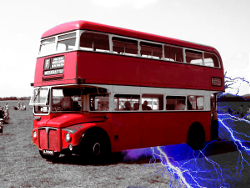City busting out electric bus trial
 A trial is on in the UK to test an innovative solution to pollution from public transport, with electric buses rolling between wireless charging points in London.
A trial is on in the UK to test an innovative solution to pollution from public transport, with electric buses rolling between wireless charging points in London.
An international collaboration has brought the new buses to life, and Londoners will see them gliding through city streets in the coming years.
Eight electric buses will be taking over the busy ‘Number 7’ route, a 24-kilometre route spanning the suburbs of Wolverton and Bletchley.
Several companies are behind the current trial, which is set to run for up to five years. The European division of Japanese company Mitsui and design engineering consultancy Arup According to Arup say the data collected in the trial could be used to kick-start electric bus projects worldwide.
The immediate goal of the current trial is to see the electric bus match the real-world performance of their diesel-fuelled predecessors. The two will be compared on a number of factors encountered in the 17-hour continuous service.
“If we can demonstrate true parity with diesel buses during this trial, we'll have reached a tipping point for low-carbon transport – we'll have proved it can be cost-effective as well as green,” said Professor John Miles of Cambridge University’s department of engineering.
The technological solution involves wireless induction charging, where the bus batteries get their juice from underground coils positioned at the start and end of the route. Charging plates have been set into the road, for transferring power to the receiving plates under the bus.
The inductive charging approach has the advantage of allowing the buses to run with smaller lighter batteries, with less dependence on onboard energy storage.
The plan is for the bus to get a full charge during its off-hours at the depot, and then replenish its batteries with a ten-minute charge at an upgraded bus station during the driver’s break time.
One of the companies behind the trial has posted the following video to explain the system:







 Print
Print